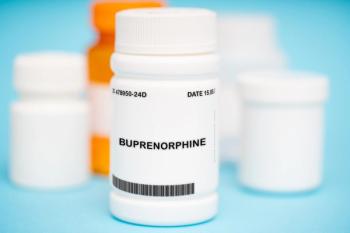
Lawmakers seek standard for generic biologics
After years of false starts, stalls, and missteps, Congress may soon be ready to tackle the thorny question of how to regulate generic biologic pharmaceuticals, lawmakers noted at the Generic Pharmaceutical Association's 2006 Annual Policy Conference held recently in Washington, D.C.
Policy makers and the drug industry are looking toward next year's expected renewal of the Prescription Drug User Fee Act (PDUFA) as a chance to establish a generic standard for the rapidly growing list of hormones, enzymes, and antibodies being produced at pharmaceutical and biotech firms. The 1984 Hatch-Waxman Act allows copycat generics to gain Food & Drug Administration approval by showing "bioequivalency." The standard rules out the need for new clinical trials if a generic manufacturer can show that its drug has the same structure, pharmacokinetic action, and safety profile as its brand-name predecessor.
But such a standard is widely viewed as untenable for large molecule biologics, whose structure can vary widely depending on manufacturing and growing techniques using bacteria and other media. The problem has stymied lawmakers and the FDA for years. But with an increasing number of top-selling biologics soon reaching the end of their patent life, members of Congress with an eye toward rising prescription drug costs may be keener than ever to find a solution.
Later, Hatch told reporters that he would look toward next year's expected reauthorization of PDUFA as a potential vehicle to establish a generic biologic standard once and for all. "The cost of biologics is so astronomical that society can't keep paying for them," he said. "We're going to come up with a definition."
Still, Hatch acknowledged that finding a consistent and scientifically valid equivalency standard remains elusive for biologics like granulocyte colony-stimulating factor (G-CSF) for stimulating white cell production.
Biotech firms, led by the Biotechnology Industry Organization, maintain that different manufacturing processes are bound to produce different molecules when generic companies make their copies. They are demanding that such copies undergo full human clinical trials before gaining FDA clearance.
But Yashwant M. Deo, Ph.D., president/CEO of AviGenics Inc., an Athens, Ga.-based generics company, said it's politics, not scientific complexity, that is slowing progress toward a standard. He blames brand companies for slowing progress in an effort to preserve billions in profits. "We can now identify and characterize the products in great detail," he said in an interview. "The scientific issues are more of a smokescreen."
Rep. Henry Waxman (D, Calif.) appeared likely to be the first out of the gate with a bill laying down a new generic standard. He said his bill, due out at the time of this writing, would direct the FDA to approach competitor generics "on a case-by-case basis" that would in some instances require mere proof of bioequivalency, but in others, require more detailed trials. The goal, he said, is to establish "functional equivalency."
Hatch had not agreed to support the bill, meaning that a final standard would take a different form than Waxman envisions. Waxman also said that other Rx drug issues such as drug reimportation and FDA postmarketing safety reform could crowd out a biologics standard next year.
The Pharmaceutical Research & Manufacturers of America and its member brand-name firms are "actively engaged" in debates over the science and public policy of follow-on biologics, PhRMA spokesman Ken Johnson said in a statement. "Any approach to follow-on biologics must be based on sound science and must preserve patient safety and confidence in medicines," he said. "It is also essential to maintain strong intellectual property protection to foster innovation that results in new medicines for millions of patients."
Newsletter
Pharmacy practice is always changing. Stay ahead of the curve with the Drug Topics newsletter and get the latest drug information, industry trends, and patient care tips.























